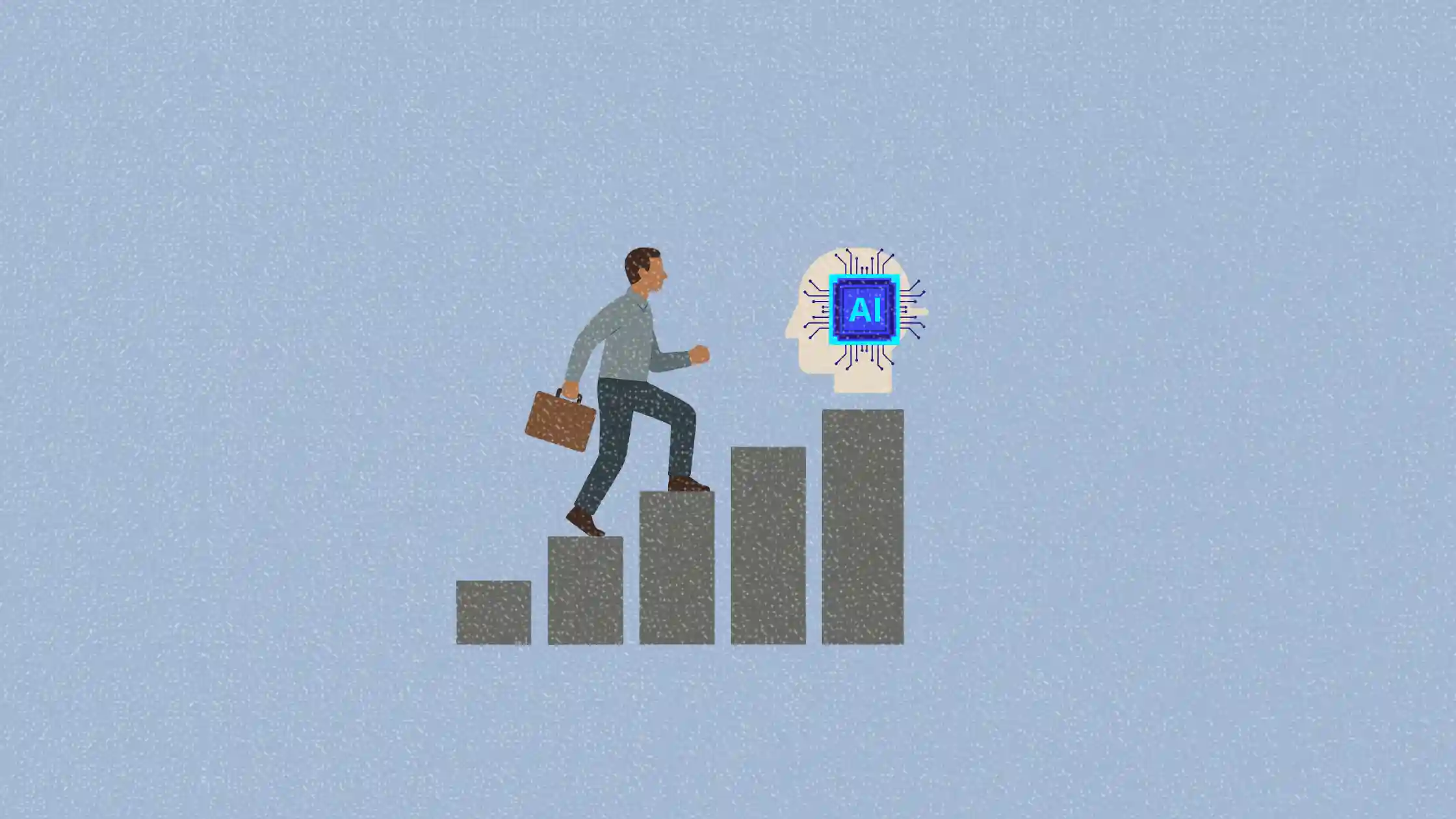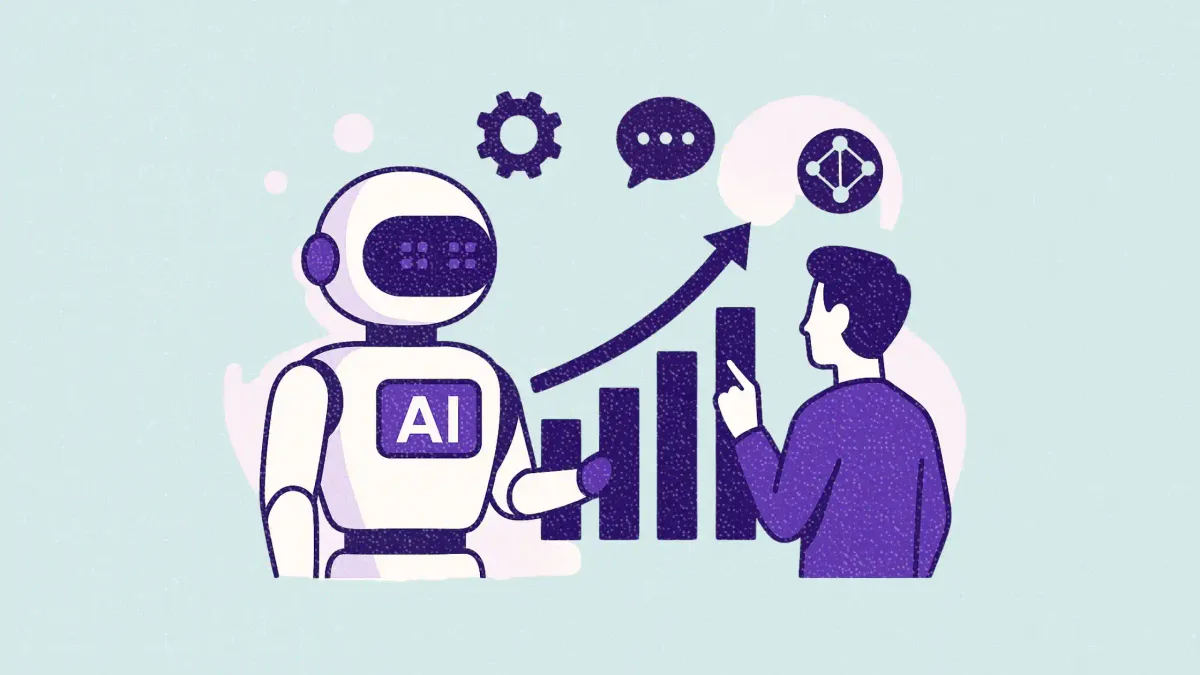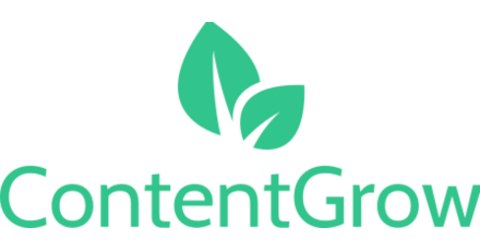
In a job market increasingly shaped by artificial intelligence, workers are not just watching from the sidelines. They are making serious moves. A new national survey from Southeastern Oklahoma State University shows that Americans are investing in their futures by retraining, switching industries, and rethinking how they engage with work.
This article breaks down key findings from the study, including how much Americans are spending to stay “AI-proof,” what industries they are moving into, and why Gen Z is leading the upskilling charge.
For marketers, HR leads, and brand strategists, these career shifts are more than a labor trend. They are a signal that AI is reshaping workforce expectations and professional development across the board.
Short on time?
Here’s a table of contents for quick access:
- Career pivots driven by AI concerns
- The cost and purpose of retraining
- Generational tension and AI in the workplace
- What marketers should know

Career pivots driven by AI concerns
One in ten Americans (11%) have already changed careers in the past three years due to concerns about AI. Another 22% are seriously considering it, based on responses from 1,000 participants in the survey.
Tech, finance, healthcare, marketing, and manufacturing are the most popular landing spots. These industries are either driving AI innovation or adapting to it fast. Among those who switched, 68% said they feel more stable in their new roles. Confidence was highest among Gen Z at 74%.
Transitions were not always smooth. About 27% of those who made a move said they experienced impostor syndrome, highlighting the personal toll that comes with adjusting to new industries.
The cost and purpose of retraining
Americans spent an average of US$1,340 on retraining over the past three years. More than half paid out of pocket. Baby boomers spent the most at US$2,670, followed by Gen Z at US$1,838.
The motivations are clear. Respondents cited salary potential, employer requirements, and the desire to build “AI-proof” skills as top reasons for retraining. More than half said they believe their new skills will keep them relevant for at least five years. Nearly half said their job security is already tied to their AI-related skill level.
Retraining participation was strongest among Gen Z at 57%, but Gen X, millennials, and baby boomers also reported meaningful engagement with upskilling programs. The message is clear: across generations, AI is no longer something to adapt to later.
Generational tension and AI in the workplace
AI is changing not only what people do but also how they work together. One in four older-generation employees said Gen Z is not ready for an AI-powered workplace. The biggest complaints were short attention spans and poor communication.
Gen Z sees things differently. About 59% say they are well-prepared for AI in the workplace. Nearly two-thirds rely more on AI tools than on human mentors or managers. When facing challenges, more than half of Gen Z respondents go to tools like ChatGPT rather than ask a colleague.
That shift is not limited to younger workers. A majority of millennials, Gen X, and even 48% of baby boomers are using AI tools for support. Still, this creates friction. 15% of all respondents said they feel “smarter than their boss” thanks to AI skills, including 17% of millennials and 16% of Gen X.
What marketers should know
This research speaks to more than just HR or learning teams. For marketers, there are real implications to consider:
1. Retraining may affect team bandwidth
If teams are investing in upskilling, project capacity could shift. Be realistic about timelines and build in learning time.
2. Employer brand positioning matters
Candidates want to know that their careers will be future-proof. Marketers should emphasize growth paths, not just perks.
3. Communication styles may need an update
With Gen Z turning to AI for support, marketers overseeing internal or employer comms should adjust their messaging to blend tech literacy with mentorship.
4. There is a market for AI-focused learning tools
If your product touches education, coaching, or B2B learning, now is the time to double down on messaging that speaks to job stability, adaptability, and ROI.
AI is not just disrupting industries. It is reshaping how Americans work, learn, and think about their professional value. The retraining economy is here, and with it comes new expectations from employees across every generation.
For marketers and leaders alike, the takeaway is clear. AI is changing the game, but those who invest in learning, clarity, and flexibility will be in the best position to lead.



Leave a Reply